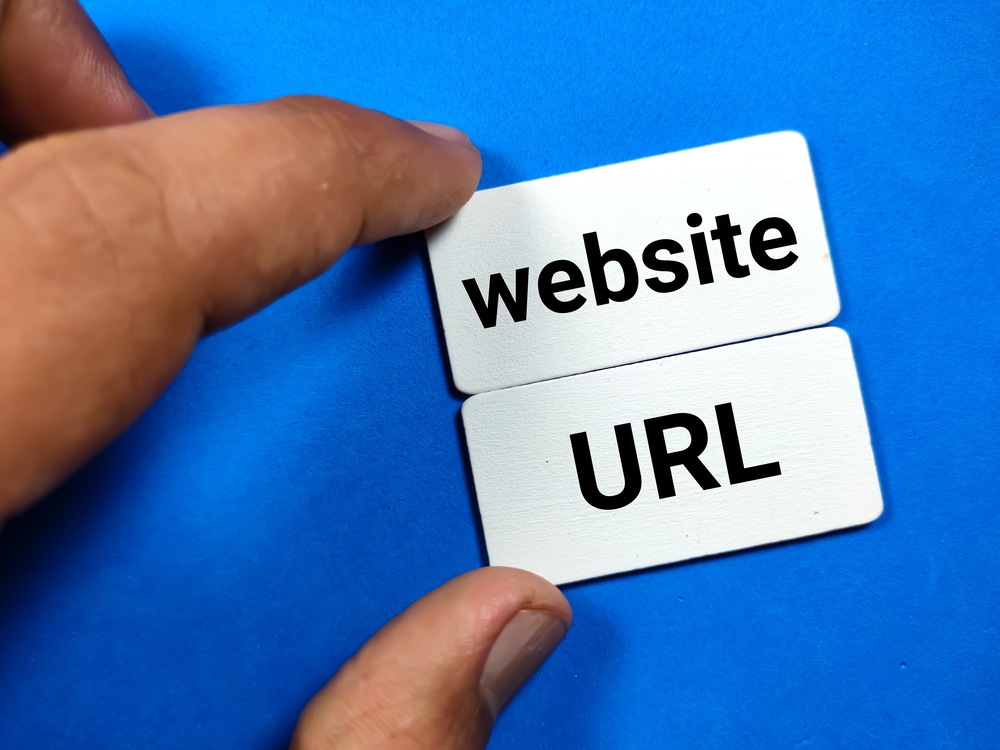Link building for SEO entails attaining a link profile that consists of high-quality links. Search engines classify links into natural and unnatural links to determine which Webmasters are trying to cheat the system and thus deserve no place in the top ranks. Quality backlinks are called natural links while low-quality backlinks are called unnatural links. In most cases, it is not the link itself that is devoid of quality but rather the manual actions like the approach to obtaining it.
Natural and unnatural links are determined by the rules set by search engines like Google. These rules are a way to hand the top positions in search rankings to websites that truly deserve it. When you are building backlinks to your website, you have to pay attention to the rules in order to ensure that your links are not flagged as unnatural. You certainly don’t want your link-building efforts to be wasted.
Here, we’ll explore all about natural and unnatural links and how you can ensure you are getting the most out of your link-building efforts. Making sure that search engines see your links as natural will result in higher rankings, more traffic, and ultimately, lead conversions. Keep reading to find out how.
What is link building and why does it matter?
Before diving into these two specific types of links, let’s take a step back and start at the beginning. Link building is the process of acquiring links on other websites that lead users to a page on your site. It is an SEO strategy that ensures that you are obtaining authoritative mentions around the web, and it improves your positioning on Search Engine Result Pages (SERPs) as a result. For us, at Nomadic Advertising, link building is truly essential to any marketing strategy, this is because search engines use your link profile as a yardstick for determining your PageRank (how popular or important your page is) on SERPs. In fact, the more quality backlinks you have, the more traffic search engines drive your way by placing your site on its top pages.
Let’s not forget, link building is also important for lead acquisition on search engines. People who are searching for your products or offerings on search engines are trying to make a buying decision and are therefore valuable leads. To get their attention, you need to rank high on search engines and that is precisely where link building comes in: it is the marketing approach for obtaining the coveted ranks.
It should then be obvious that link building is a way to drive visitors to your website. When users find your link on websites that interest them, they are likely to click on it and visit a page on your site. Depending on your link-building goal, you can convert these visitors into customers. Building the right links can also build trust in your brand. Both search engines and users will believe in the authenticity of your brand if your links are found on authority sites. Link building can change your marketing game and help your business succeed by opening you up to more traffic opportunities. As such, it is an SEO technique that should be high on your list of strategies to implement.
Natural links
Now that we have this basic framework under our belt, let’s get back to the topic at hand. Natural links are backlinks that you obtain without your involvement in the link-building process. Your website earns these links without any agreement between you and the source website. When links are natural, Google believes that there has been no attempt to manipulate the rankings on SERPs. With these kinds of links, you had no role to play in the link acquisition process. Natural links are usually obtained when a neutral third party thinks your content is valuable and includes a link to it in their own website as an additional resource for their users. To that end, creating valuable, informative, and usually SEO-optimized content is a great strategy to make sure other websites will want to link to you and what you have to offer; this is one way to ensure natural links are not completely out of your control.
Unnatural links
Unnatural links are links that you influenced with the intention of acquiring PageRank for your website. This includes links that you source from authority websites and position properly to drive traffic to your site. The distinction between natural and unnatural backlinks became important as Webmasters began to churn out low-quality content in a bid to obtain backlinks. However, Google developed its new algorithm to stop this trend and ensure that backlinks rewarded only valuable content with top page rankings.
Why are they important?
As a site owner who is looking to acquire more traffic through SERPs ranking, you should know the difference between natural and unnatural links. The key reason is that Google wants you to cultivate backlinks properly to ensure that page rankings achieve their purpose of providing users with the most valuable content for their search queries.
In order for Google to guarantee the top spots in its organic search results are truly worthwhile and beneficial to users, webmasters now need to know how to earn natural quality backlinks or properly position their backlinks to pass the test of authenticity and get rewarded instead of penalized. Therefore, knowledge of the two kinds of links is essential to helping you obtain the results that you want. In a nutshell: to boost your position in Google’s organic search results, you need to know exactly how these links work and properly use them to your benefit.

Their impact on SEO
Apart from having a crucial role on your PageRank, natural links are also the backlinks that are used to determine your domain authority. Such authority is another factor that influences what position your site gets in the ranks. Natural links play a vital role in Google’s algorithm development as they go to determine each site’s ranks for their targeted keywords. Unnatural links, on the other hand, harm your domain authority and earn you penalties from search engines. This is so whether you obtain these links manually or using automated tools. In a nutshell: while natural links go into determining your domain authority, PageRank value, and eventual positioning, unnatural backlinks end up acquiring penalties that only derank your website.
However, we do have some good news for you: it isn’t that easy for search engines to determine which links are natural. As a result, Google has developed its Webmaster’s rules[1], which focus on how its algorithm can identify a natural link. As a site owner looking to build links to your site, you need to know what these links are and the rules you must abide by, this is so that, regardless of your involvement in how the links were built, they seem natural to Google’s algorithm. Also, you certainly do not want your otherwise natural links flagged as unnatural.
Build quality links
Google discovers natural links solely through its algorithm, which uses certain indicators and penalizes links that it deems unnatural. Building quality links, therefore, entails understanding what these indicators are and structuring your links accordingly. The fact that Google wants you to obtain links without participating in the process should not deter you from implementing your link-building campaigns.
Allow us to help you know these indicators so you can be fully prepared:
Backlink sources
If your backlinks come from sources that are outside your industry, Google is likely to deem them unnatural. Try to obtain links from sources within your industry in order to maintain a healthy backlink profile.
Source diversity
If your backlinks all come from the same source website, Google will suspect them to be unnatural because the algorithm will assume that you have a link-building agreement with such a source. This will also be the case if your links come from only a few sources. As a result, it is important that you spread your links across several source websites. Here at Nomadic Advertising, we constantly track our client’s link diversity with third-party link-building tools like Ahrefs and Moz to ensure our clients are getting the most out of the link-building strategies we tailor-make for them. You can also try out these useful tools yourself and track your link-building progress.
Link contex
Try to always provide some context when posting your links. Links that appear alone on external sources will no doubt look unnatural and get flagged by search engines. However, if they are followed by an explanation, they will tend to appear more natural. Similarly, your links shouldn’t be posted randomly on sites, forums, or comments that have nothing to do with the page that they point to. For example, if you are providing a link to specific content on your site in response to a comment, don’t just post the link. Follow it with an explanation that gives it context and makes it appear relevant to search engines.
Anchor text
While anchoring keywords with relevant links is a popular practice, Google now sees this as spammy. The search engine can easily detect when all your anchor text is hyperlinked with keywords and key phrases. To get around this, you should anchor the specific parts of your texts that are explaining the content on the page and are not just keywords. Place your links naturally within your text.
Link destination
Diversifying the destination of your links is also a crucial part. That is, do not point all your backlinks to the same page of your website. Most Webmasters simply direct the link to the site’s homepage. While you may want exposure for your homepage, the essence of backlinking is providing valuable content. As such, in order for the algorithms to deem your links as natural, you must first take a look at the source website where you intend to add your links. Start by ensuring the content of that website is related and relevant to your own. Once you have established a relevant connection you can proceed to add your own links because you’ll be pointing to important information for everyone involved. A good way to ensure this is to consider backlinking your blog posts, offerings, and product pages so that the links point directly to the relevant pages.

Frequently Asked Questions
What is an unnatural link?
Unnatural links are links that you influenced with the intention of acquiring PageRank for your website, including links that you source from authority websites and position properly to drive traffic to your site.
What is a natural link?
Natural links are backlinks that you obtain without your involvement in the link-building or link-acquisition processes. Natural links are usually obtained when a neutral third party thinks your content is valuable and includes a link to it in their own website as an additional resource for their users.
Does Google penalize spam links?
Yes. Google has many strict guidelines surrounding the correct use of online resources, especially around link-building. Unnatural links are tricky and if the process is not done correctly you can face some penalties. The good news is you won’t get penalized for just one unnatural link, but you still need to be careful. Getting a penalty will likely result from using black hat SEO practices. Not performing a thorough analysis of a website’s backlink profile could also result in a penalty if the profile is not natural and is not adhering to Google’s guidelines in the first place.
What are the benefits of link building?
A good link-building strategy will directly impact a website’s PageRank based on popularity and relevance. The more quality backlinks a website has, the more traffic search engines drive their way by placing the site on its top pages. Once a website has a high ranking on search engines, it is only a matter of time before its followers, leads, and ultimately sales start to increase. Through the process, the website’s authority will also start to improve.
There are a lot of other factors that affect whether a link is natural or unnatural. These include places where the links are added such as directories, forums, resource sites, blogs, and so on. Whether a link is a dofollow or nofollow and whether it is part of a solid content piece, but for now we hope this guide has helped you to better understand what natural and unnatural links are and why you should really add them to your link-building strategy.
Knowing what type of links you are creating can help you take the right steps toward building quality links. We fully believe you need a link-building strategy that will distribute your links across multiple sources in a way that makes them natural, among many other aspects that are crucial to making a successful and impactful strategy. If you think you have the necessary knowledge to create this strategy on your own then we encourage you! Hopefully, our guide can help you take your first steps into the link-building world. However, we know firsthand just how much work and time need to go into creating a solid strategy, which is why we would love to help you out.
A link-building strategy created by our digital marketing professionals at Nomadic Advertising will begin by looking into the structure of your links to ensure that they possess all the characteristics of a natural link. The following stages of our strategy will require a lot more steps and knowledge. If you’d like to know exactly what we can do for you and your business you can contact us and claim your FREE 30-minute strategy session, in which we can delve into your priorities and make sure we can meet all of your expectations. Our team of experts can build a comprehensive SEO strategy that can help you start to build your rank on SERPs the right way, earns you quality links and the rewards that come with them, and much more. So what are you waiting for? Check out our website to see everything we can do for you to solidify your online presence in every possible way!
References
1) Google Search Central: https://developers.google.com/search/docs/essentials





